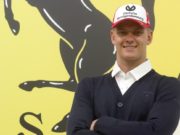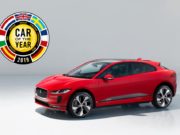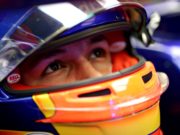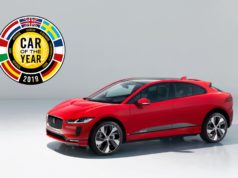At the technology conference “Web Summit 2017” (Lisbon), the Volkswagen Group and Google announced a comprehensive research cooperation in the field of quantum computing. The two companies will explore the utilization of quantum computers together. The aim is building up specialist knowledge and to carry out practically oriented research. A team of specialists from Volkswagen and Google will work together using a Google quantum computer. Quantum computers can solve certain highly complex tasks considerably faster than conventional supercomputers. In some cases, a solution will only be possible with quantum computers.
Volkswagen Group IT wants to make progress in three development areas on the Google quantum computer. The specialists intend to continue the development of traffic optimization. They will explore structures for new materials, especially high-performance batteries for electric vehicles. And they will work on artificial intelligence with new machine learning processes.
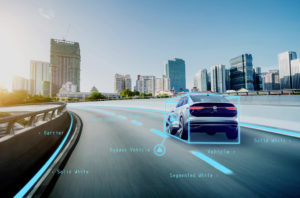 Martin Hofmann, Chief Information Officer of the Volkswagen Group, says: “Quantum computing technology opens up new dimensions and represents the fast-track for future-oriented topics. We at Volkswagen want to be among the first to use quantum computing for corporate processes as soon as this technology is commercially available. Thanks to our cooperation with Google, we have taken a major step towards this goal.”
Martin Hofmann, Chief Information Officer of the Volkswagen Group, says: “Quantum computing technology opens up new dimensions and represents the fast-track for future-oriented topics. We at Volkswagen want to be among the first to use quantum computing for corporate processes as soon as this technology is commercially available. Thanks to our cooperation with Google, we have taken a major step towards this goal.”
Hartmut Neven, Director of the Google Quantum Artificial Intelligence Laboratory, says: “Volkswagen has enormous expertise in solving important, real-world engineering problems, and it is an honour for us to collaborate on how quantum computing may be able to make a difference in the automotive industry.”
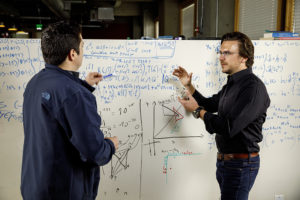 This collaboration will focus on research for practical applications. Specialists from the Volkswagen Information Technology Centers (IT labs) in San Francisco and Munich will develop algorithms, simulations and optimizations together with the Google experts. They will carry out this work using Google universal quantum computers. This architecture is suitable for many experimental computing operations.
This collaboration will focus on research for practical applications. Specialists from the Volkswagen Information Technology Centers (IT labs) in San Francisco and Munich will develop algorithms, simulations and optimizations together with the Google experts. They will carry out this work using Google universal quantum computers. This architecture is suitable for many experimental computing operations.
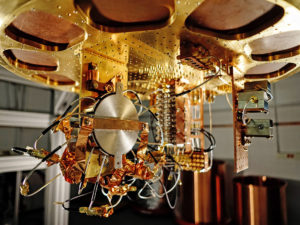 Volkswagen Group IT intends to explore the potential of this quantum computer in several different areas
Volkswagen Group IT intends to explore the potential of this quantum computer in several different areas
In the first project, the Volkswagen specialists are working on the further development of traffic optimization. They are building on the research project which they have already successfully completed. And now they want to consider additional variables in addition to reducing travelling times. These include urban traffic guidance systems, available electric charging stations or vacant parking spaces.
In a second project, the Volkswagen specialists aim to simulate and optimize the structure of high-performance batteries for electric vehicles and other materials.
A third project concerns the development of new machine learning processes. Machine learning is a key technology for the development of advanced AI systems, which are a prerequisite for autonomous driving.
The Volkswagen Group is the first automotive company in the world to work intensively on quantum computing technology. In March 2017, Volkswagen announced its first successful research project completed on a quantum computer. It is a traffic flow optimization for 10 000 taxis in the Chinese capital Beijing.
At the technology conference @WebSummit 2017, #Volkswagen and #Google announced their research project in the field of quantum computing. Development of traffic optimization and high-performance batteries are definitely on the cards! Smart ? pic.twitter.com/qfnnaL7Rpm
— Marshall Motor Group (@MarshallGroup) November 8, 2017
Quantum computing studies computation systems (quantum computers) that make direct use of quantum-mechanical phenomena, such as superposition and entanglement, to perform operations on data.
Quantum computers are different from binary digital electronic computers, which base is transistors
Whereas common digital computing requires that the data be into binary digits (bits), each of which is always in one of two definite states (0 or 1), quantum computation uses quantum bits, which can be in superpositions of states.
The work of Paul Benioff and Yuri Manin in 1980, Richard Feynman in 1982 and David Deutsch in 1985 initiated the field of quantum computing. A quantum computer with spins as quantum bits was also formulated for use as a quantum spacetime in 1968.
As of 2017, the development of actual quantum computers is still in its infancy. But there were experiments in which quantum computational operations were executed on a very small number of quantum bits. Both practical and theoretical research continues and many national governments and military agencies are funding quantum computing research in additional effort to develop quantum computers for civilian, business, trade, environmental and national security purposes, such as cryptanalysis.



